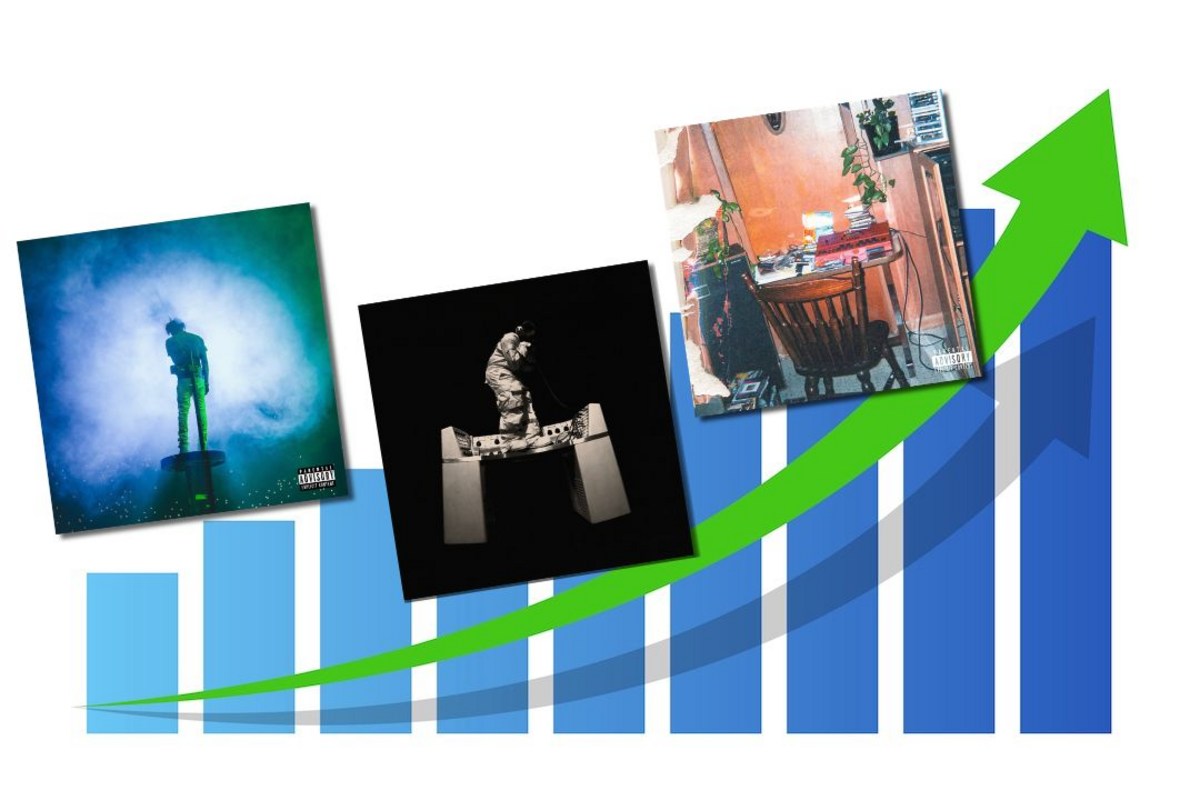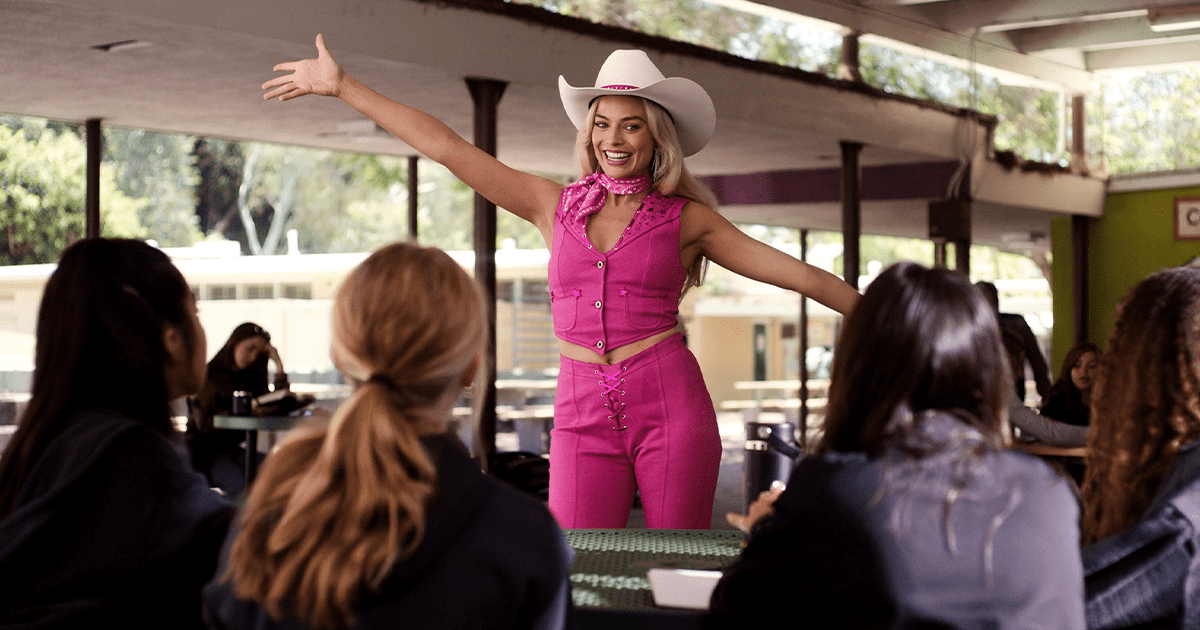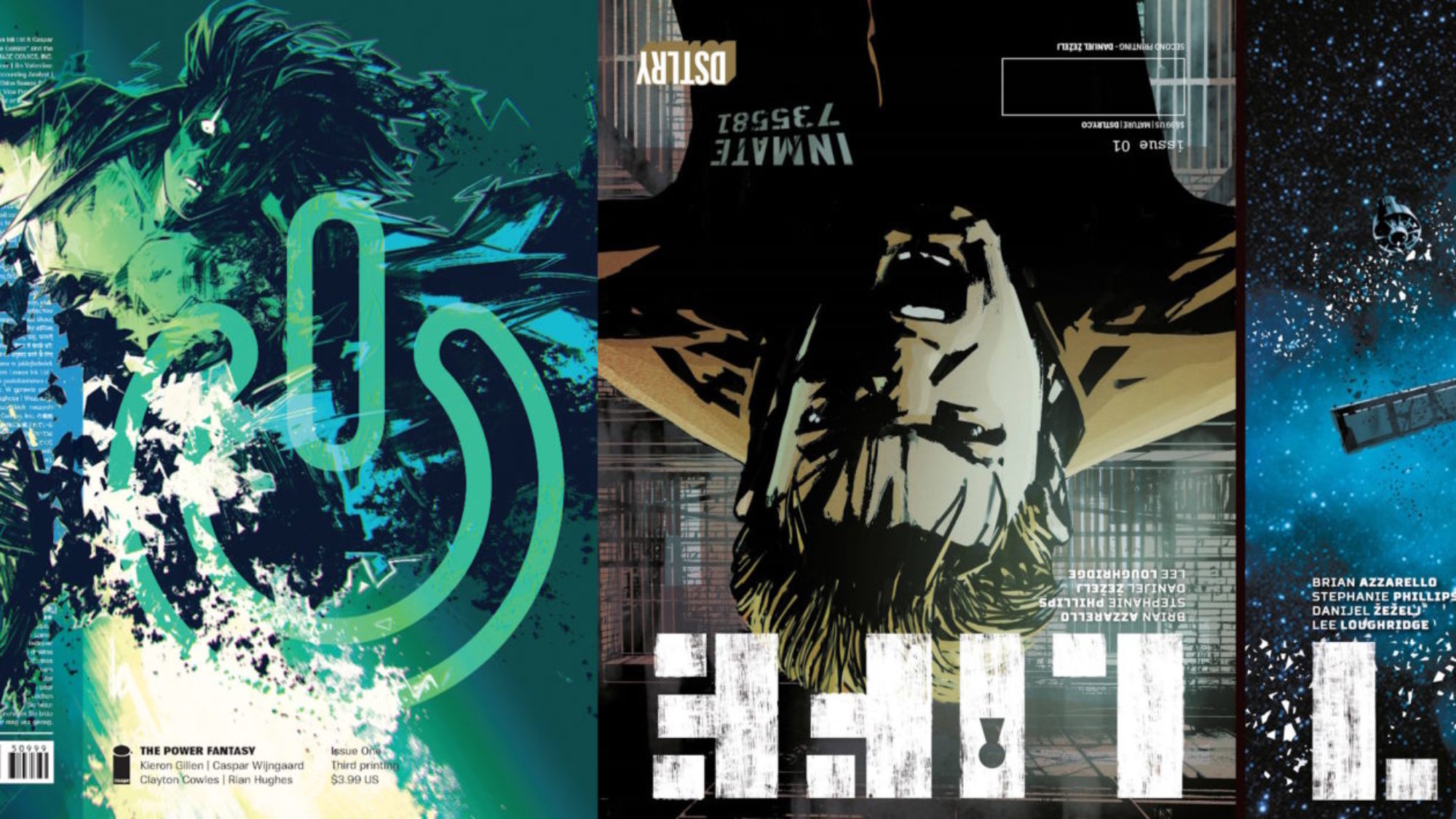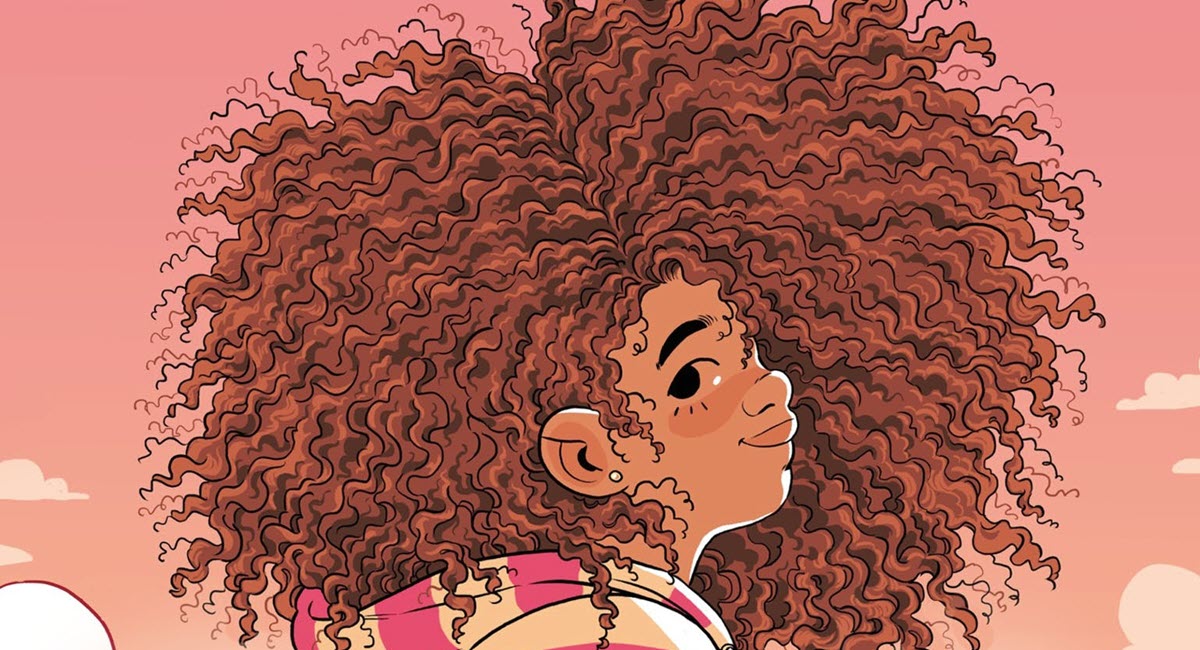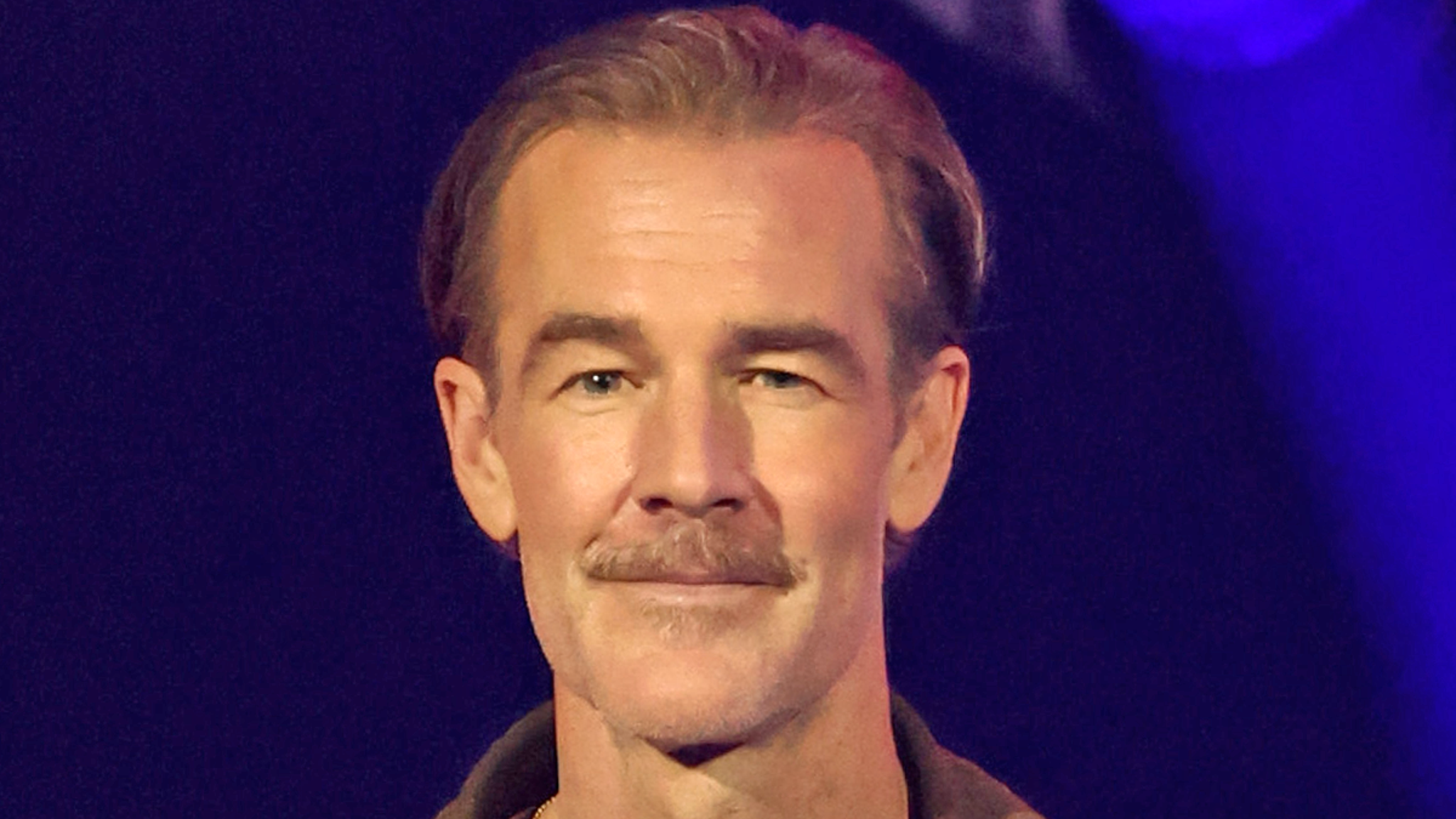David Lee Roth and his former Van Halen bandmates squared up for round two just two years after battling each other for the first time with 1986’s Eat ‘Em and Smile and 5150. This time, the opposing camps had very different game plans.
Roth’s first solo album showcased gonzo hard-rock wizardry from both guitarist Steve Vai and bassist Billy Sheehan, but he was now aiming for a more conventional, pop-friendly and keyboard-heavy sound on Skyscraper. Sheehan left the group shortly after the album’s completion, later labeling the record “clinical and calculated.”
Meanwhile, Van Halen had bonded even more tightly with new singer Sammy Hagar during their eight-month tour in support of 5150 and decided to see how far they could push their new lineup with 1988’s genre-hopping OU812. Who had the better plan and who made the better album? Our writers compare and contrast OU812 and Skyscraper below.
What was your first impression of each album when you heard them? Which do you like more now and why?
Bryan Rolli: When I first heard Skyscraper, I thought Roth had lost the plot of his solo career, and I mourned the waste of such an electrifying band on a record that was too experimental by half. When I first heard OU812, I was amazed by just how hard Van Halen was working to sound like they were having no fun at all. I still largely stand by both assessments, but I’ve come to embrace Skyscraper’s offbeat impulses and OU812’s studious hard rock. Neither album ranks at the top of their respective discographies, but if I had to pick one, I’m going with Skyscraper for its eccentricity, brevity and unabashed fun.
Rob Smith: With a few exceptions, I was aghast at what I heard on Skyscraper. Eat ‘Em and Smile was a hard-rock meltdown, with three straight-up virtuosos (Vai, Sheehan, and Gregg Bissonette) providing the heat. Roth put Sheehan in a box on Skyscraper, taped the box up nice and tight, and left it out with the week’s recycling. I’ve said it before: We should’ve had a decade’s worth of albums from the Eat ‘Em and Smile band, and I’m still pissed we didn’t. OU812 was and is the superior record, with better songs and a commercial vibe that doesn’t seem nearly as cloying as Roth’s attempt at the same thing. Sounded great all that summer too, blasting out of whatever speakers I had handy.
Matthew Wilkening: As instantly catchy as “Just Like Paradise” was, the keyboards and super-clean production also served as a clear warning that Roth had changed tactics for the worse. It’s the same feeling some hardcore Metallica fans got when they first heard “Enter Sandman” three years later. The rest of Skyscraper arrived a month later, and another problem became clear as the songwriting had also taken a large dip in quality. There are a few high points, most notably “Hina,” but somehow Roth had traded in what made him so special and become just another guy. OU812 wasn’t as magical as 5150 on early listens, although it had an admirable experimental streak. Over time, some of the more straight-ahead songs have gotten a bit stale – particularly in the lyrical department, which may be due to Hagar having to write 5150, the contractually-mandated solo album I Never Said Goodbye and OU812 in very short order.
Gary Graff: I actually enjoyed both but didn’t think either was world-changing. OU812 solidified that Sammy was the right guy for Van Halen 2.0, and the album showed a clear confidence off of 5150‘s success and the touring to support it. Skyscraper didn’t have the creative extremes of Eat ‘Em and Smile but was arguably more consistent – similarly showing virtues that came from success and that ensemble playing live together. It’s certainly a high point for Steve Vai as a writer and (commercial) rock player. I remember at that point, as fans, it felt like we’d doubled down and won.
Matt Wardlaw: I loved OU812 and was instantly lured in by “Black and Blue.” Hearing it at a time when I wasn’t overly analytical about the production and all of that, it was a solid step forward following 5150. By comparison, Skyscraper left me a bit cold after hearing and digging Eat ‘Em and Smile previously. Even with the lack of bass and bottom end, I feel a good amount of love for OU812 now. It’s partially sentimental but there also were some good nuggets on OU812, particularly the bonus track, their cover version of Little Feat’s “A Apolitical Blues.” It was always great to hear the less serious side of Van Halen.
Listen to Van Halen’s ‘When It’s Love’
Which album is better relative to its predecessor?
Rolli: I’ll be the first to admit I regard the Van Hagar era with a healthy dose of skepticism, but that’s also why I give OU812 the edge in this category. 5150 is a dynamite album but for me, it also marks the beginning of Van Halen’s downward spiral, so the jump from 5150 to OU812 isn’t quite as vast. On the other hand, I consider Eat ‘Em and Smile to be the best record Van Halen never made, so I’ll always be a little disappointed by its strange, sterile successor, no matter how much it grows on me.
Smith: OU812 continued the evolution of the band with Sammy Hagar as its singer and lyric writer – more varied songs and a smarter incorporation of keyboards, yet still possessing the Van Halen vibe. Roth’s pop maneuvers on Skyscraper neutered a great band, and he never quite recovered.
Wilkening: Roth made a big wrong turn on Skyscraper, while OU812 was the next logical step in a creatively and commercially successful path for Van Halen 2.0. Still, even as Hagar and company explored new sub-genres on songs like “Finish What Ya Started” and “Mine All Mine,” the writing and arrangements became more conventional and predictable. This trend would continue throughout the Van Hagar era, as the loss of Roth’s inherent oddball streak became more and more glaring with each new record.
Graff: I think the nod goes to OU812. Vai’s great; Eddie Van Halen is, well, Eddie – and it’s hard to beat that, especially in the context of a band that was, at that point, still a band and a well-seasoned one a decade after its first album. Song for song it’s a better and at times more adventurous album. There was nothing to program the old CD track list around, whereas you’d wind up passing over a few tracks on Skyscraper.
Wardlaw: Both Van Halen and Roth made some interesting moves with these albums, but in the case of OU812, it feels like the initial magic with Hagar had faded a bit. That didn’t hamper my enjoyment of OU812 at the time and I think they rebounded with For Unlawful Carnal Knowledge (which ultimately, I’d place higher than 5150). I just don’t think that Skyscraper is a very good album.
Listen to David Lee Roth’s ‘Just Like Paradise’
Do you think Van Halen and Roth made the right move by self-producing these albums, and which album sounds better?
Rolli: It was a catastrophic misstep on both Roth and Van Halen’s parts to self-produce these albums. Ted Templeman was basically the honorary fifth member of both Van Halen and the David Lee Roth Band. He knew how to coax the best performances out of every musician, capture their calculated aggression on record and, most importantly, help them trim the fat and check their worst impulses at the door. The bass is virtually inaudible on both albums, but OU812 gets the slight sonic edge, if only because Alex Van Halen’s drums sound way bigger and tougher than Gregg Bissonette’s.
Smith: OU812 does not sound as thin as 5150 did, but it still was not as full in its sonic presentation as their next album – For Unlawful Carnal Knowledge – would be. The best way to play OU812 was really loud; the volume negated much of the compression. Skyscraper had a nice, full mix, which made “Just Like Paradise” sound great coming out of a car stereo. Vai’s guitar on “Two Fools a Minute,” and “The Bottom Line,” among others, was also big and nasty. The album needed more of that.
Wilkening: Both albums would have benefited from better sonics, and you’d like to think Templeman would have thrown himself on the train tracks to change Skyscraper‘s overall direction. OU812 could definitely use more low-end oomph, although I’d go back and fix the drum sound on 5150 before trying to correct the bass on OU812.
Graff: The nod, again, to OU812. Van Halen had the not-so-secret weapon of Don Landee, a master engineer who also served as co-producer. The sonics are upfront and punchy and don’t sound dated decades or years later. Roth and Vai did a solid job on Skyscraper, but the presence of eight credited engineers, including Vai, and two mixers couldn’t help but make for a less cohesive sound. It still holds up but does sound more like a product of its time than OU812.
Wardlaw: It’s hard to say how either album would have shaken out if you added more guidance from a third party. But I think in each case, it’s the record that needed to be made at the time. Looking at the sonics, Skyscraper wins that competition. The lack of bass and bottom end on OU812 is frustrating, something which is consistent for a lot of the band’s Hagar-era catalog.
Listen to Van Halen’s ‘Black and Blue’
Assuming the music remains the same, which song from OU812 would you most like to hear Roth sing? Which would be the worst match?
Rolli: The hyper-speed swing of “Source of Infection” sounds reminiscent of Eat ‘Em and Smile’s “Shyboy,” with plenty of room for Roth’s gonzo shrieks and ad-libs. His fun-in-the-sun lounge-lizard shtick is also perfectly suited to the languid “Finish What Ya Started.” On the flip side, Roth lacks the chops to belt the stone-faced power ballad “When It’s Love” — and he’d be too busy scoffing at its elementary lyrics anyway.
Smith: Tee up “Source of Infection” for Roth, and let him write an actual set of lyrics. (Hagar’s are nonsense.) Roth might’ve done well with the zero-distortion jam of “Finish What Ya Started,” too; that one’s got the kind of groove I think he would have strutted all over. The worst? Probably “When It’s Love.” The high notes would have been a struggle, particularly live.
Wilkening: “Finish What Ya Started,” particularly the half-spoken verses, is a perfect fit. “When It’s Love” would be a disaster.
Graff: Just because it was so left-field, “Finish What Ya Started” invites a Roth take. It’s a little more sexually direct, lyrically, than he tended to be, but Roth always cottoned onto material that gave him room to vocalize, and “Finish What Ya Started” offers plenty of space for him to insert his abundant personality. “When It’s Love” would be the worst fit; Roth is just not a power ballad kinda guy, and the melodic swoops in the chorus would sound like aliens had taken him hostage.
Wardlaw: It’s interesting, I think you can pretty easily reconcile the idea of Roth singing a lot of these songs, albeit with more of a “party vibe.” “Black and Blue” and “Finish What Ya Started” as two examples. I’d probably want to hear him tackle “Black and Blue” the most, between the two. On the other hand, “When It’s Love” feels like it would be an inevitable train wreck.
Watch Van Halen’s ‘Finish What Ya Started’ Video
Assuming the music remains the same, which song from Skyscraper would you most like to hear Hagar sing? Which would be the worst match?
Rolli: Despite his boundless charisma, Roth sounds curiously flat on “The Bottom Line,” an otherwise blistering rocker that could benefit from Hagar’s gut-busting howl. Hagar’s at his best when he’s pushing his pipes to their breaking point, but he lacks the sagely, after-hours mystique necessary to pull off Roth’s captivating performance on “Damn Good.”
Smith: I suppose “The Bottom Line” would have been the best, with different verses – it’s punchy enough, and Sammy digs punchy. Worst match? Probably anything else on the album. “Perfect Timing” would have been particularly awful, but then again it wasn’t much with Roth singing, either.
Wilkening: It’d be fantastic to see Hagar (or anybody else) spend hours trying to wrap their head around the lyrics and bizarre prog-rock structure of “Skyscraper” without cracking up. His voice would be perfect, probably even an upgrade, on the album-closing “Two Fools a Minute.”
Graff: A Sammy take on “Damn Good” would be very interesting. He’s underrated as a singer of more restrained material, and he certainly knows how to sing about “damn good times.” He’d be a bit less Vegas-y than Roth but could certainly bring an emotional heft that would tweak the song in another direction. The worst match? I’d keep him away from “Just Like Paradise.” It’s not that he can’t sing pop, but that one’s so awash with a particular SoCal kind of spirit that’s just not who he was at that time.
Wardlaw: I’m gonna go with the single here, “Just Like Paradise.” I think Hagar would have knocked that out of the park. “Hot Dog and a Shake” runs a close second, though that seems more out of reach for Hagar. I don’t think that any song on Skyscraper is impossible, but “The Bottom Line” seems like the most unlikely target for Hagar to sing.
Listen to David Lee Roth’s ‘The Bottom Line’
Both albums had plenty of poppy and keyboard-heavy moments. Which one had the best pop single?
Rolli: “When It’s Love” was the major Top 5 hit off OU812, and as far as late-’80s power ballads go, it’s catchy and kind of charming in its own overwrought, cheesy way. But it’s too workmanlike for its own good, and the song sounds like it could have been written by any of the AOR bands ruling the airwaves in 1988. Roth doesn’t get off scot-free either: “Just Like Paradise” is a shameless bid for pop-crossover success that he would’ve balked at a few years earlier. The thing is, it works. Those glittery synths, alien guitar leads and skyscraping (pun intended) vocal hooks coalesce into an indelible pop-rock confection. Roth wins this one hands-down.
Smith: I’ll give this one to Roth. “Just Like Paradise” is a fun, breezy pop single. It’s even better if you’re able to set aside the fact that the guy who gave us fun, heavy stuff like “Panama,” “Everybody Wants Some!” and “Unchained” is singing the fun, breezy pop single. “Finish What Ya Started” comes close, but the groove grounds you in place – it’s hip-swaying and sexy – whereas “Just Like Paradise” is all about forward motion, moving to and through the best day of your life, knowing the night will be even better.
Wilkening: Obviously the intended choice here is “When It’s Love” or “Just Like Paradise,” right? Well, instead let’s stump for some dark horses. Skyscraper‘s unconventional but also flat-out dreamy ‘Hina’ might be the best song on either album and OU812‘s “Feels So Good” is a highly underrated slice of sunshine that Hagar knocks out of the park.
Graff: In that regard, the winner is “Just Like Paradise” from Skyscraper. It’s exuberant, breezy and big fun, and those huge chorus harmonies are tailor-made for summer and everything we loved about pre-grunge MTV rock ‘n’ roll. At just over four minutes (still a little long for a single back then), “Just Like Paradise” also had time to plant its flag and let the listener settle into the vibe.
Wardlaw: It’s a close race, but I think OU812 wins with “When It’s Love.” Even though it’s more in the ballad territory, “When It’s Love” is Eddie and Sammy at their melodic and poppy best with that chorus.
Listen to David Lee Roth’s ‘Hina’
Rock’s Ugliest Band Breakups
Ugly band breakups are a sad fact of life in the world of classic rock – along with death, taxes, hair loss and yes, profitable reunion tours.
Think You Know Sammy Hagar?




